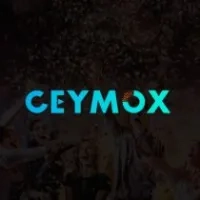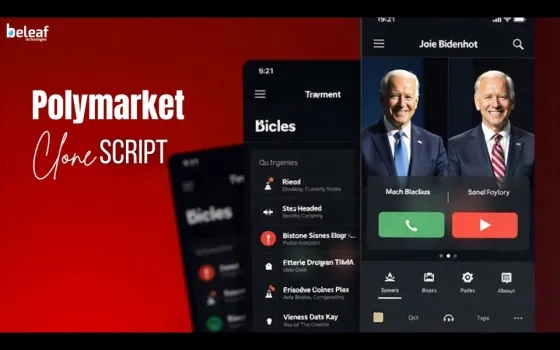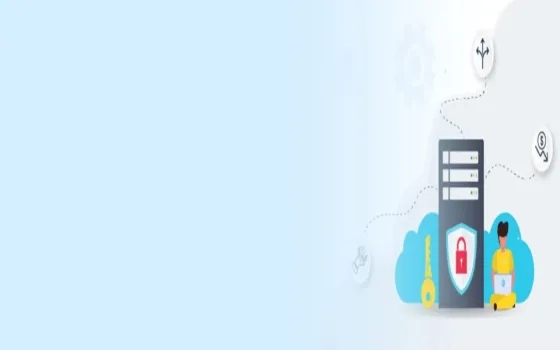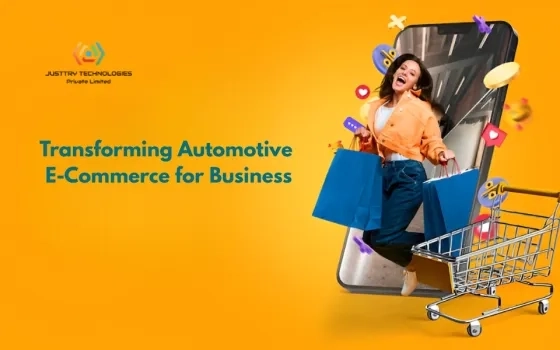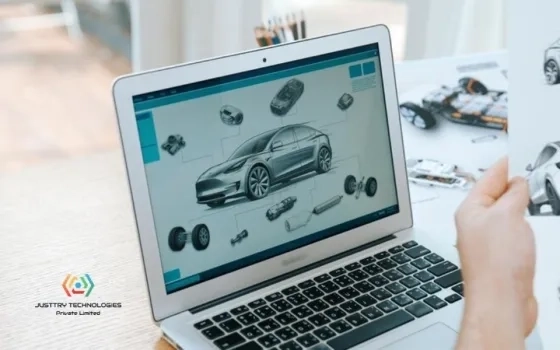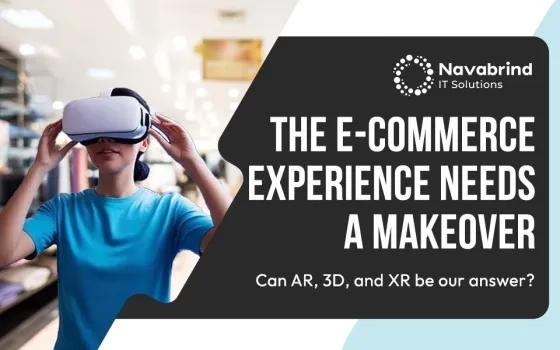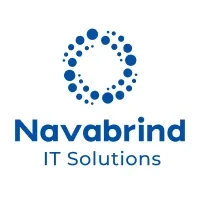Do you know that the total population on the planet earth is nearly 7.7 billion? I believe you already know that. But do you know that one-fourth of this huge population now prefer to do shopping online? Now, this is a very surprising stat. To make it more enthralling, this figure is only increasing and is expected to reach a massive 2.14 billion by 2021. We have come a long way from the barter system, minting money, and now buying things digitally with just a few taps on the screen. We are now seeing the line getting blurred between physical and e-commerce. However, the difference in growth trajectories between retail and e-commerce is still stark.
There are many companies and retailers who are bypassing the retail outlets and selling directly to the customer on online e-commerce platforms. As technology is now available for almost every age group, online shopping has become a user-friendly way for children as well as old people. Everyone loves to shop through their debit or credit cards sitting from their home at the comfort of crouch and the order getting delivered on their doorstep.
E-commerce Introduction:
Internet commerce or electronic commerce, e-commerce is a process in which the products or services are bought or sold digitally across the internet. Most of the people believe that in e-commerce only physical products are sold such as on popular e-commerce sites like Amazon, Ebay, Flipkart, etc. But it is not limited here. The roots of e-commerce are widespread. It includes many different types of transactions which are facilitated through the internet. While e-business refers to all aspects of operating an online business, e-commerce particularly refers to the transaction of goods and services.
In today’s time, company and retail outlets of almost every industry niche have gone online to increase their revenue. They are leaving no stone unturned to woo their site visitors so that they can convert into regular patrons. Among many such tactics, there are 3 main techniques which are playing a major role for better customer experience and increasing their sales. These 3 main techniques are:
- Upselling
- Cross-selling
- Related Products
If your eCommerce application is built with Magento, this is very easy to manage and implement. Otherwise, Any best e-commerce development company can implement these techniques very easily.
We are going to discuss these tactics in comprehensive detail in this article beginning with Upselling.
E-commerce Upselling Products:
In the e-commerce industry, upselling products to a customer implies cajoling that customer to spend more money on the site than he initially planned during the purchase. Sound complicated? Let us simplify it…
Consider a scenario, suppose you are going to buy a bean bag from a furnishing e-commerce store. The cost of a bean bag is $100 but without beans. Then on the Add to Cart Page or Checkout Page, you find an option of purchasing at $10 if you buy them along with your bean bag. If you buy them separately the beans will cost you $15. This is the best epitome of Upselling products on your e-commerce store. Here you are attracting your customer to purchase more and spend more.
Let’s consider another scenario: you want to buy an Apple Macbook Pro 13. The cost of it is $1,299. If you click on the Add to Cart button, you will be navigated to the configuration page. Now you will observe, that on the configuration page, you’ll be shown an “upgrade” for each component (both hardware and software).
Basically in the Upselling strategy, the user will find a better version of the product on the site. The intention is to make a bigger sale. However, showing other relevant products is also a part of upselling cross-sell that we will discuss later. You offer your customer the chance to purchase an upgraded product with better features, better specifications, more volume, or simply an expensive version for maximizing the value of the purchase.
It may apparently seem unethical but it is actually not. You are not forcing the customer but just giving suggestion. This is the reason why we have a 40 inch LED in our drawing room while we planned for a 32 inch TV.
E-commerce Cross-Sell Products:
After Upselling, Cross-selling is another very popular strategy of selling products. Here you show the related products which customers are buying. The products can be of any category but must be complementary to each other for e.g. A room fresher refill for an automatic room freshener. Consider a scenario, a customer wants to buy a smartphone on your store. Then in the cross-selling strategy, you will suggest him products related to a mobile phone such as Screen guard, phone case, earphones, etc. If the customer is purchasing a pair of shoes, then you can recommend him with products like shoe polish, socks, shoelace, etc.
Unlike the Upsell strategy where we were recommending a better version, in the cross-sell you will suggest products which user may miss or they didn’t have in mind while purchasing. It is almost similar to the salesman in a brick & mortar store which gives you suggestions while shopping.
Cross-selling can be a very important factor for increasing your sales. In 2006, Jeff Bezos revealed that 35% of sales on Amazon is through cross-selling.
E-commerce Related Products:
You must have observed the Related Products Section on an e-commerce site like Amazon. It is mostly present on the footer of the product details page where the similar products are shown. Don’t get confused between the related products and cross-sell products. Cross-sell products are the extra necessary items that you are buying while related products are alternatives for the chosen product.
Here is an example of Related Products view if you are purchasing lubricant oil:
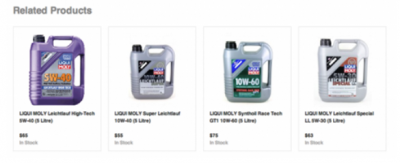
The related product’s appearance is helpful for buyers as they can check out other products too which may be in their budget. It increases the number of items in the cart.
As we have understood each Upsell, Cross-sell, and Related Products strategy, now let’s know the benefits of them.
Upselling Products Benefits:
Sales techniques are completely ethical by every means. In fact, these sales techniques are a win-win situation for both customers and sellers. E-commerce store owners rely a lot on these sales techniques for their revenue. Some of the benefits of upselling products are:
1.Boost customer relationship and trust:
Upselling is a fair play and not a dirty tactic. You are in fact helping your customers by giving better products suggestions and preventing them from buying a product which may they need to change in future. You suggest them better, premium products and upgrades, which can deliver more value to them, and make them feel that they have made a better purchase.
2.Upselling to existing customers is easy than acquiring new customers:
There are many scenarios when acquiring a new customer is really an arduous task. So to make profits you can upsell products to your existing customers who already have faith in you. As per a study, there are 60-70% chances of upselling products to an existing customer while to a new customer the figure is only 5-20%.
3.Increases Customer Lifetime Value:
Customer Lifetime Value is defined as the net profit earned by your company by a customer over a period of time. The customers are divided into 3 different categories: not profitable, profitable, and highly profitable. If there is a higher CLV then it indicates the customer is highly profitable for your business and you don’t require any further investment on him. It is also telling you that you must focus on acquiring new customers on your e-commerce store. Upselling is one of the most effective ways to turn shoppers into very profitable customers and keep them coming back.
4.Customers came back for more:
Upselling will compel your customers to return to your store and do more shopping. By just giving some simple suggestions to your customers you will make sure they come back. Make sure to offer great purchasing service and value-added services to make them your regular patrons.
Cross-Selling Products Benefits:
Cross-selling works more than Upselling. When you are solving your customers’ problem by providing the suggestions of needful items, you gain his trust. Cross-sell but without forcing or frustrating users. Cross-selling is an art, the items suggested for cross-selling must be relevant else it will backfire.
1. Build Customer Loyalty:
As you are solving the customers’ problem of finding the extra products, you are earning his valuable trust. Let’s take the example of a smartphone purchase. Now there are insurance services for gadgets too. If a customer is buying a smartphone for 20K and you offered him a 1K insurance plan to purchase which will cover all damage or problems in the mobile, it can be useful for him in the future. This will build trust and the customer will go nowhere to buy things except your store.
2.More profit, and lower prices:
Cross-selling is a win-win situation for both buyer and seller, as in cross-selling discounts are involved. It means the company will reduce its profit margin in the cross-selling of product. But there are chances that without cross-sell there would be no buyers of it. Hence, overall it increases sales and thus generates profit. Also, the customer gets the product at lower prices.
3.Makes you stand alone:
The exciting of cross-selling is that there are many different ways of doing it. Whatever is your technique, it becomes the Unique Selling Advantage that makes you different from your competitors. If your approach is reasonable and valuable, you’ll add to that customer loyalty that’s so important.
4.Create a better relationship with the customer:
If you are don’t forcing the customer by suggesting products which they don’t need, if you are ready to accept a no for the cross-selling suggestion, the cross-selling will build a better bond with your customers. It should seem like you care for your customer’s needs and not doing it just for making profits.
5.Develop New Leads:
One more benefit of the cross-selling is that it will help you generate more leads. If you have earned loyal customers who regularly purchase on your store, then they can suggest your store to their friends, family or colleagues. Always remember, mouth publicity is the most powerful publicity at all.
Related Products Benefits:
A customer always observes the related products category, maybe to find other alternatives which are cheaper than his/her considered choice. Here are some of the benefits of the Related Products in the Product details page:
1.Safest Way:
Related Products is the safest way in all these categories to boost sales on your e-commerce site. The customers need to choose other alternatives which can be either cheaper or costlier.
2.Customers get more options:
When a customer searches for a product on an e-commerce site, he mostly purchases it sooner or later. Yet, there are a lot of chances that the customer will also check out the related products. Take an example, suppose a user wants to buy a kitchen item i.e. a vegetable chopper from a reputed company like “Pigeon”. The user will search “Pigeon Chopper” on the site and go to product details page but there he will many other similar items at comparatively lower rates. It is his choice whether he wants to buy a branded product or the same items from a less popular company.
3. Builds Trust:
Related products is a great deal for the frugal users who better to go for quality rather than a brand name. Taking the above example of the chopper, there are chances that a frugal user will give a chance to a local product.
Difference between Upsell, Cross-sell, and Related Products:
After reading this much, you may be getting baffled between Upsell, Cross-sell, and Related Product because some of the properties appear to be same. In Upselling, we encourage customers to purchase a higher-priced product, in Cross-selling we encourage the customer to purchase extra or complementary products which can be essential with the product they are buying. In related products, we give suggestions for a similar product having almost similar configurations and price. Let’s understood in a better way through this table:
| User Case | E.g. of Upselling | E.g. of Cross-selling | E.g. of Related Products |
| Shoes Purchasing | Offering similar shoes, but more expensive and with better quality | Coming up with recommendations like Shoelaces, polish, socks, etc. | Showing a similar pair of shoes, which may or may not be expensive. |
| Smartphone purchasing | Offering a smartphone with better features and obviously more expensive | Suggestion smartphone-related products like phone case, screen guard, insurance etc. | Showing mobile phones of similar range |
How to use Upselling Products in your e-commerce store?
Do you know that you can convert nearly 4% of your site visitors through Upselling? You must be thinking that it not a huge number. But remember, in business, it is better to have little less profit than no profit at all. In Upselling, you mostly sell a higher model of the chosen product by the customer. But when it’s just 4% that you are targeting, the margin for error is as thick as the edge of a blade.
Here are the different ways of upselling products on your e-commerce store:
- Promotions of most viewed and most selling products
- Display feedbacks from the customer for upselling
- Keep a fact in mind that the suggested product for upselling must not be more than 25% costlier than the customer’s chosen product, else it can backfire.
- You can add features such as insurance plan while buying expensive electronic items and the customer can deselect if it isn’t required.
- Give proper reasons for the customer while upselling: why the customer must buy an expensive item?
- Narrow down the choices, as too many choices, can be paralyzing. Don’t bombard your customers with too many choices.
- Don’t just baffle the customer. The customer must be able to take easy decisions with the choices.
How to use Cross-selling Products in your e-commerce store?
A cross-selling strategy must be implemented quite carefully. The customer must feel that you care for him while making profits. It is not just limited to generating sales, but building customers’ trust as well. Some of the best tips for cross-selling on your e-commerce site are:
· Give the utmost priority to the customer shopping experience:
The cross-selling method shouldn’t frustrate the customer. In fact, it should enhance the customer experience and fulfil the needs of the customer. It shouldn’t ostensibly seem like a sleazy sales tactic.
·Cross-selling must be simple:
If you are giving a high number of cross-selling suggestions to your customer then you are just confusing them. It can distract them from the item they were purchasing and can even reduce the chances of making a purchase.
· Initiate with best-selling products:
You should initiate with your top-selling product and look for related or complementary products to suggest with it on the product page or at checkout. If the user is purchasing a high priced item, you can offer the insurance plans or extra warranty services.
·Try Bundling
This is a proven method for selling items through cross-selling. You create a package or a group of products in bundling at a comparatively lower price if the products would have sold individually. It is a win-win strategy for both customers and sellers. E.g. a bundle of Smartphone, earphone, Phone cover, Screen guard, and insurance protection.
·Use visuals:
Leverage high-quality images and videos to showcase your products. Also, explain their working, and provide the customer with a close look at how the item can benefit them.
·Present their value:
If you just recommend the products to the customer then the customer may not easily buy them. You need to showcase their value. You need to prove that spending some extra bucks on these products will help them in the long run while using that product. You can also use sections such as “Popular related products” or “Customer also bought”. You can also link to case studies, with reviews and ratings.
How to use Related Products in your e-commerce store?
This is the easiest strategy among all these to implement in your e-commerce store. You can amazingly showcase the other relevant product on the product’s detail page. Here are the tips for the related products section:
·Give smarter recommendations:
The recommendations for other products should be highly personalized as per the customer shopping experience. You can get the shoppers’ overall buying methods through an analytical tool implemented on your site. Customers love personalized recommendations. These recommendations will vary from person to person and will be defined as per their shopping journey.
· Use high-quality photos:
At Kate Spade’s store, you can observe that when you hover the mouse on a bag you can see a model carrying it. This makes it easier for people to visualize how they’ll look if they buy it for themselves.
·Create a section “Customers Also Viewed”:
You can create a section Customers Also Viewed based on the data insights of other customers. It then considers how often these items were present together in their purchase or browsing history. The items displayed are tailored or personalized for every user.
· Suggest Products on the basis of Google Search:
You must suggest products to the user on the website homepage based on his previous searches and buying experience. You will require a lot of data for implementing this functionality. So it may be not possible for the first time visitors for your site.
·Use the phrase “You might also like”:
This is another powerful strategy to suggest products that are similar to the ones you’re viewing. Similarity can be based on very different metrics. Some advanced recommender tools filter meta-data (descriptions, tags, product name etc.) based on similarity. It can also be based on category, colour, brand, or business.




